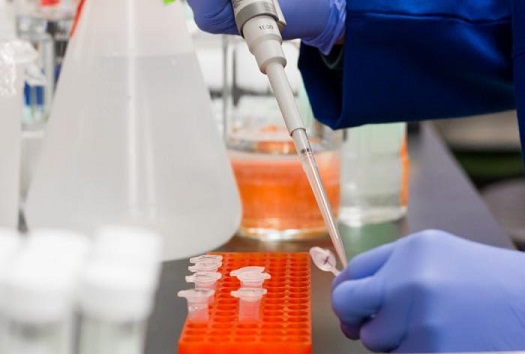Study reveals shifts in key inflammatory markers known as Adipokines in COVID-19 patients
Nikhil Prasad Fact checked by:Thailand Medical News Team Aug 15, 2024 8 months, 1 week, 4 days, 2 hours, 38 minutes ago
Medical News: In an effort to better understand the inflammatory responses triggered by COVID-19, researchers from the Jagiellonian University Medical College in Kraków, Poland, and the Medical University of Silesia in Zabrze, Poland, have delved into the changes in specific pro-inflammatory markers, known as adipokines, in COVID-19 patients. This study focused particularly on visfatin and leptin, two proteins that play significant roles in the body’s immune and inflammatory responses. The findings from this research shed light on how these markers fluctuate in response to the virus and offer potential insights into the severity of the disease.
 Study reveals shifts in key inflammatory markers known as Adipokines in COVID-19 patients
The Focus of the Study
Study reveals shifts in key inflammatory markers known as Adipokines in COVID-19 patients
The Focus of the Study
Adipokines are signaling proteins secreted by adipose tissue and have been found to influence inflammatory responses and immune function. Among these, visfatin and leptin are of particular interest due to their roles in inflammation and metabolic processes. This
Medical News report aims to explore the changes in serum concentrations of these adipokines in COVID-19 patients compared to healthy individuals, a topic of increasing relevance as the world continues to battle the pandemic.
The research team, which includes experts from the 2nd Department of General Surgery, the Department of Physiology, and the Department of Medical Statistics at the Jagiellonian University Medical College, along with colleagues from the Medical University of Silesia, designed a study involving 40 COVID-19 patients and 24 healthy control subjects. Serum samples were collected from the participants upon admission to the hospital and again on the seventh day of hospitalization. These samples were then analyzed for concentrations of visfatin and leptin using enzyme-linked immunosorbent assay (ELISA) kits, a standard method in biochemical research.
Key Findings
One of the most striking findings from this study was the significant difference in visfatin levels between COVID-19 patients and healthy controls. Upon admission, COVID-19 patients exhibited markedly lower levels of visfatin compared to the control group. Specifically, the median visfatin level in COVID-19 patients was 4.29 ng/mL, whereas the control group had a median level of 37.16 ng/mL. Interestingly, by the seventh day of hospitalization, visfatin levels in COVID-19 patients increased significantly, surpassing those in the control group with a median level of 52.05 ng/mL. This sharp increase suggests that visfatin might play a role in the body's response to COVID-19, potentially as part of the inflammatory process.
In contrast, leptin levels did not show a significant difference between COVID-19 patients and healthy controls. The median leptin levels were relatively similar across both groups, and no statistically significant changes were observed between the first and seventh days of hospitalization. However, the study did find a positive correlation between body mass index (BMI) and leptin levels, reaffirming the well-established link between obesity and
increased leptin production.
Implications of the Findings
The changes in visfatin levels observed in this study suggest that this adipokine could be a key player in the body's inflammatory response to COVID-19. Visfatin is known for its role in immune cell function and inflammatory processes, and its initial decrease followed by a sharp increase might reflect the body's attempt to counteract the virus. The findings align with previous research that has shown elevated visfatin levels in severe and critical COVID-19 patients, further supporting the idea that visfatin could be a biomarker for disease severity.
Leptin, on the other hand, did not exhibit the same pattern of change, which may indicate that its role in COVID-19 is less significant than that of visfatin. However, the positive correlation between leptin levels and BMI highlights the potential impact of obesity on the course of COVID-19, a factor that has been widely recognized in clinical settings.
Conclusion
This study provides valuable insights into the complex inflammatory processes at play in COVID-19 patients. The significant fluctuations in visfatin levels suggest that this adipokine could be a useful biomarker for monitoring disease progression and severity. While leptin levels did not show significant changes, the correlation with BMI underscores the importance of considering obesity as a risk factor in COVID-19.
Further research is needed to fully understand the role of visfatin and leptin in COVID-19 and to explore their potential as therapeutic targets. Longitudinal studies with larger patient cohorts and more diverse populations could help clarify these adipokines' roles and provide new avenues for treatment.
The study findings were published in the peer-reviewed Journal of Clinical Medicine.
https://www.mdpi.com/2077-0383/13/16/4784
For the latest on COVID-19 research, keep on logging to Thailand
Medical News.
Read also:
https://www.thailandmedical.news/news/sars-cov-2-uses-histone-deacetylase-6-to-boost-its-own-replication
https://www.thailandmedical.news/news/sars-cov-2-n-proteins-cause-degradation-of-cellular-components-involved-in-rna-interference-and-rna-splicing
https://www.thailandmedical.news/news/swiss-study-unveils-sars-cov-2-nsp1-protein-s-role-in-human-mrna-destruction
